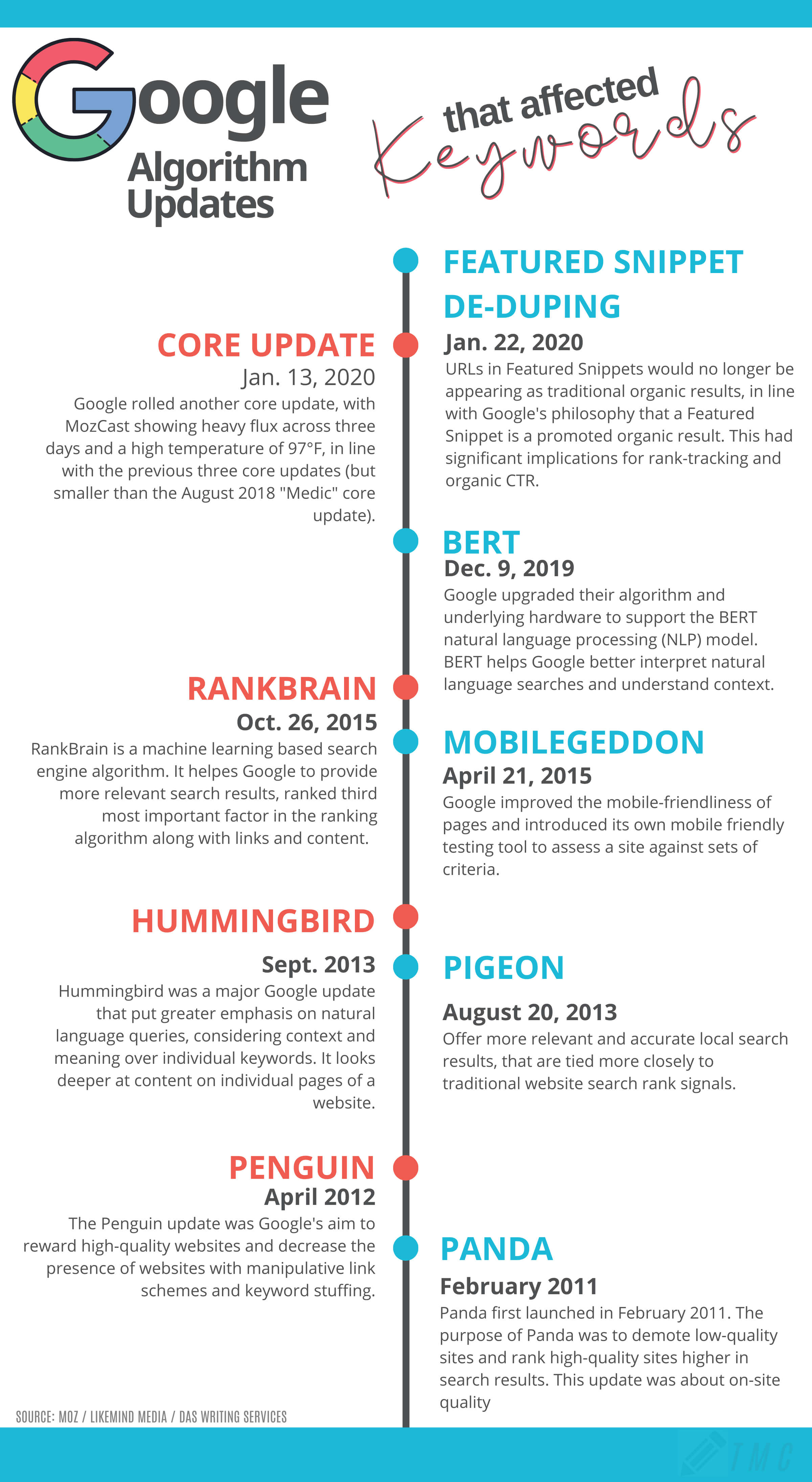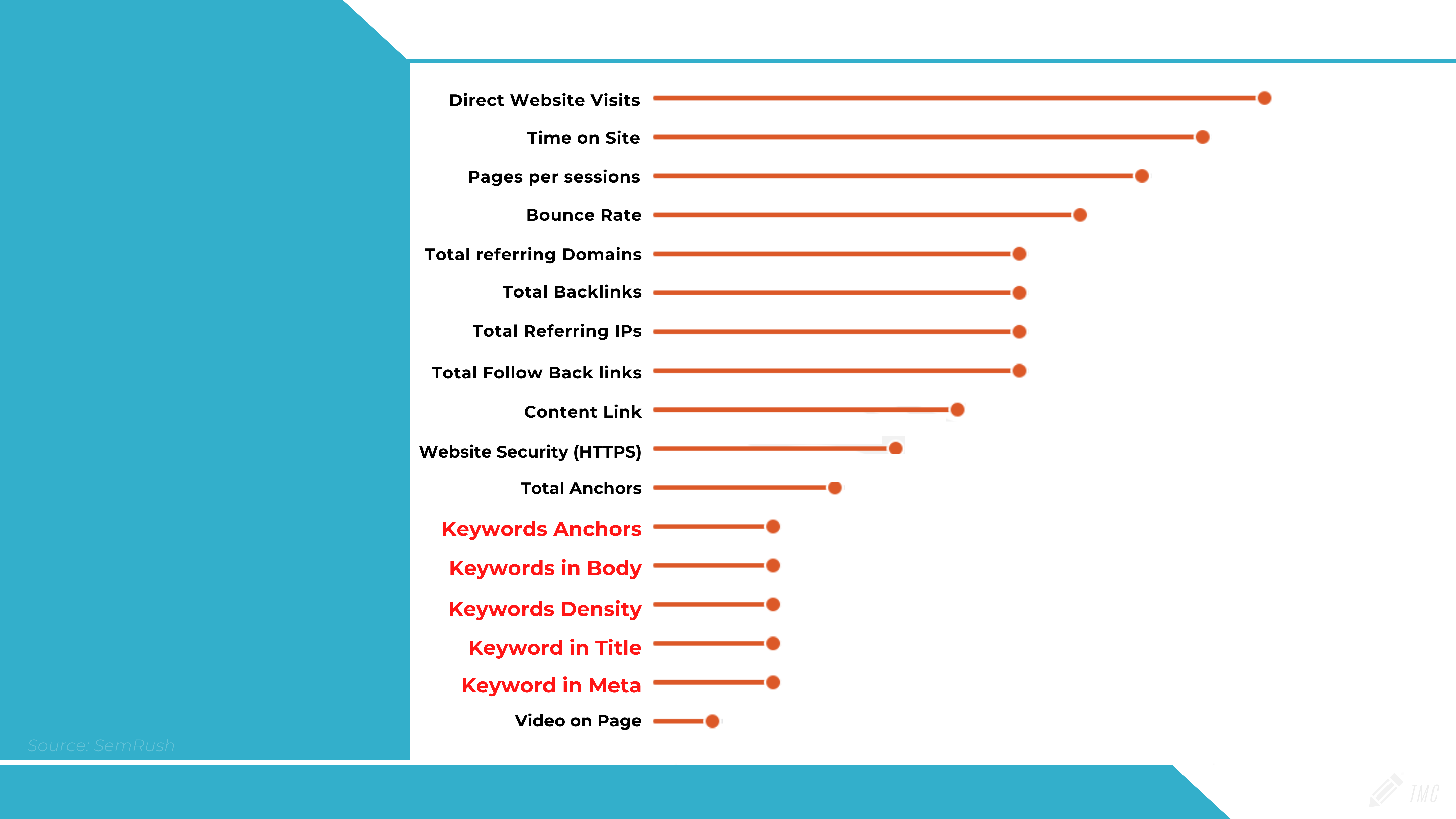Is keyword still key to a successful SEO strategy?
Google keeps improving its search engine algorithms to help make people’s lives better. It is constantly indexing more and more factors to get people the most accurate results on its Search Engine Results Page (SERP). In its ever-upgrading system, digital marketers might wonder, are keywords still key to a successful SEO strategy?

Search engine algorithms have changed dramatically over the years. In the past, to land your page on the coveted SERP first-page, digital marketers and web developers executed strategies that would get them penalised if they did it today. There was a proliferation of spammy, low-quality, duplicate, and keyword-stuffed content all over the internet so that websites can get remarkable rankings. It was considered good SEO back in the day because it was all about the numbers back then. The more keywords, the better, even if an article may not be making sense anymore or the content failed to add value to the reader’s queries.
A whole new Google algorithm
Now, Google’s algorithms are smarter. Search engines’ parameters have changed what they consider worth indexing for SEO rankings. There are about 200 factors that Google’s algorithm considers, falling under categories such as domain, page-level, site-level, backlink, User Interaction (UI), on-site and off-site web spams, brand signals and other Google algorithm rules.
Google now looks for well-designed websites that are easy-to-use, highly navigable, hugely accessible, mobile responsive, with dynamic content of high-quality and high-value, and following best practices of cybersecurity. Google looks for these because PEOPLE LOOK FOR IT. When people see what they like, they dwell, browse some more, consume more content, share content, and even make purchasing decisions because of the content they want. The socialnomics of today have a high demand for online content that has resulted in a thick competition of websites offering products and services for mass consumption. For people to know which ones to invest their time on, Google makes it more accessible through SEO ranking. So how does Google’s algorithm updates affect the role of keywords in SEO?

It’s harder to outsmart Google today when it comes to producing websites and content. Controversial optimising tricks are what their system looks for and penalizes. Yes, you cannot do away with keywords, but SEO is not just about keywords. So how do we use keywords to optimize our SEO?
In a recent study looking at 600,000 keywords, they found that keywords still mattered to SEO. Content length with the right keywords made, for instance, a 45% margin between the Top 3 and the 20th position, and branded keywords drop accounted to about 20% of referrals. But other factors racked higher for Google, which means it prioritizes what leads do within your site, more than the keywords that brought them there.

Another study discovered that 75% of pages that rank in Google’s top 10 didn’t get there through the exact matching of keywords. Google algorithms go beyond matching keywords to checking the relevance of content and how these keywords seamlessly support the topic and guide users to answers they are looking for within the page. Other factors matter more to Google, like cybersecurity, for instance, 85% of highly-ranking keywords came from secured HTTPS sites. So, if keywords are no longer the top priority, is it still key to your SEO strategy?
Why are keywords still important?
1. Keywords help increase conversion rates
As I have mentioned earlier, the right keywords can increase conversion rates by driving traffic to your site. You can check Google Analytics and see further what keywords are trending in your target niche. Pay close attention to long-tail keywords that actually bring in more conversion than short-tail ones. When you discover what questions your target market is asking, what problems they need solutions for, and which among their queries are not being served by your competitors, then you can optimize and tailor your keywords further. You will also write more relevant content when you know what makes your audiences tick. You’ll attract more readers when you have engaging, highly-valuable content that meets people’s needs, more than pushing or hard selling content to viewers.
2. Keywords give you insight on the latest trends
Through tools such as Google Trends, you can use keywords to bring your content to a higher level. With a better understanding of consumer behavior and recent marketing trends, you can continuously update your keywords and content to run with those trends and stay competitive.
3. Keywords bring strength to your SEO
Keywords may not be the main factor in SEO ranking, but they still bring strength to your SEO by helping Google identify the nature of your website much easier, and thus reflect that towards audiences through SERP rankings. If used correctly, even on other channels like social media, they can increase traffic to your main website and engagement as well.
You cannot ignore keywords because they leave these trails of crumbs that can bring leads in, but you need to be ready with supporting content that is of high-quality and value for your visitors. Here are some do’s and don’ts you can observe in optimising your keywords:
- Strategically use keywords: You need to use keywords strategically to leave a good trail that generates leads and helps in increasing conversion rates. Make sure that you use keywords in your main page title and <h1>, subheadings, alt tags, and meta descriptions. Anywhere Google will index, leave a trail of major keywords that tell a clear summary of what your page is about.
- Use keywords seamlessly: Organically incorporate the keywords and one or two variations thereof in the body of your content. Put those main keywords, for example, in the first 100 words of your article, and then some variations in the succeeding paragraphs.
- Keywords need to be readable: Make your article readable with the use of bullet points. Use easy-to-read styles of writing, whether it’s a white paper article or otherwise. You should want to hit as many demographics as you can, and making your article convoluting is not a good way to draw the majority of your target market in.
- Do not overuse keywords: Keyword stuffing is, as I mentioned, penalized by Google Analytics according to its new algorithm rules. Don’t favor keyword density over good, quality content. Your users will have a terrible experience reading your copyright if you stuff it with keywords repeatedly. Lower user satisfaction is more frowned upon by Google than how many keywords you successfully crammed into your copy.
- Do not write for search engines but people: You are not writing for search engine bots but for real people who have real needs. If you focus on keywords, you lose sight of this basic marketing foundation—that the customer is king. Yes, you want to improve rankings, but if you produce content that serves a real demand, that ranking will have a strong foundation for greater leads, conversions, and ranking.
Conclusion: Keywords are still critical to SEO
Complacency is the enemy of progress. We cannot expect digital marketing and SEO practices to remain stagnant in an ever-evolving backdrop of innovation, can we? As trends in SEO keep changing, we need to adjust and be as future-forward as possible to keep up with the times.
Keywords are here to stay, but the cheap tactics of yesterday must not. With the way things are going technology-wise, there’s a big likelihood that digital marketers will no longer be as needed in the future. SEO will take on a different form, and if you are so dependent on just one tool, like keywords, you will not be able to quickly adapt and lose your relevance altogether in the digital age. Learn other marketing skills and tools, keep upgrading yourself, and don’t just rely on the traditional SEO techniques you’ve used for years.
Subscribe
Related Blogs
Exploring Drupal's Single Directory Components: A Game-Changer for Developers

Web development thrives on efficiency and organisation, and Drupal, our favourite CMS, is here to amp that up with its…
7 Quick Steps to Create API Documentation Using Postman

If you work with API , you are likely already familiar with Postman, the beloved REST Client trusted by countless…
What is Product Engineering Life Cycle?

Imagine constructing a house without a blueprint or a set of plans. It will be challenging to estimate the cost and labor…




